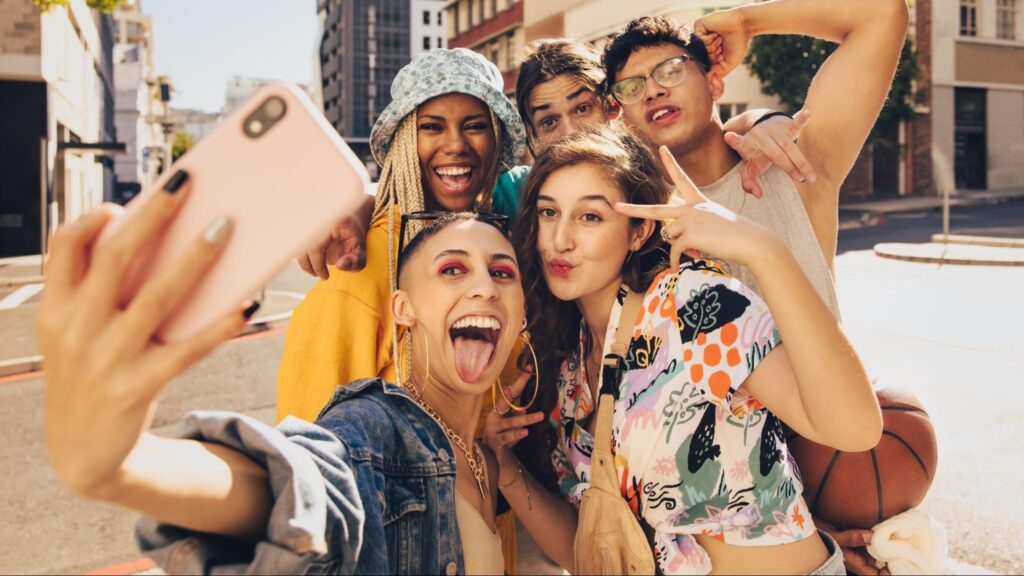According to the American Psychological Association’s Stress in America survey, anxiety and depression are the two most significant mental health issues among Gen Z, with 9 out of 10 individuals diagnosed with a mental health condition experiencing anxiety and 8 out of 10 experiencing depression. Notably, as digital natives, they are the most comfortable discussing their mental health.

Let’s explore three ways businesses and marketers can effectively create mental health campaigns that resonate with Gen Z, addressing their concerns and encouraging positive mental well-being.
Authenticity Above All
Gen Z has a need for you to speak to them with authenticity and empathy. And if you really want to make a special connection, cultural relevance and alignment are an added bonus. Gen Z has a low tolerance for inauthentic marketing. When addressing mental health, brands must speak from a place of genuine concern and empathy. Zoomers value honesty, so marketing campaigns should avoid sugar-coating or being overly promotional when discussing mental health.
How do do this in the real world:
- Share real stories from people within the community, especially those that align with Gen Z values of openness and vulnerability.
- Avoid sensationalizing mental health issues. Instead, focus on normalizing the conversation around mental well-being.
- Collaborate with mental health professionals and advocates to ensure messaging is accurate, empathetic and culturally relevant and free from biases and stigmatizing language.
Case Study:
The Dove campaign, The Real Cost of Beauty Ideals, stands out for its uniquely authentic and relatable approach. It addresses toxic beauty standards through the story of Mary, a young girl struggling with self-esteem. You can watch the video below.
The Power of Influencers
Secondly, consider collaborating with influencers who promote mental health. Influencers are a trusted source of information for Gen Z, especially those who openly discuss mental health. Partnering with influencers who have personal mental health journeys and are advocates for self-care can give your campaign credibility and broaden its reach.
How do do this in the real world:
- Partner with influencers who are known for their mental health advocacy and align with your brand values.
- Focus on micro-influencers who are deeply trusted by their smaller, engaged communities, and allow them to create authentic content about mental health.
- Allow influencers to share personal stories, tips, and support resources in their own voice.
Meet Gen Z Where They Are
Thirdly, leverage platforms where Gen Z spends time such as social media platforms like TikTok, Instagram, and Snapchat. These platforms allow for creativity, interactivity, and real-time engagement, which are perfect for addressing mental health topics.
How do do this in the real world:
- Use TikTok or Instagram Reels to create short, engaging videos that address mental health in a relatable, conversational way.
- Engage with interactive formats like Instagram polls, question boxes, and live Q&A sessions where Gen Z can ask mental health questions.
- Use visual storytelling through platforms like Pinterest or Instagram, focusing on positive mental health practices, coping mechanisms, and wellness routines.
How is your brand addressing Gen Z’s mental health needs? Share your thoughts in the comments.
Reference for additional reading: National Library of Medicine article – Digital Methods for the Spiritual and Mental Health of Generation Z: Scoping Review.
Marketing to Gen Z about mental health requires brands to be authentic, empathetic, and highly engaged. By creating campaigns that offer real solutions, encourage open discussions, and meet Gen Z where they are (online), brands can foster stronger connections and encourage positive mental health care. For businesses, it’s crucial to remember that this generation doesn’t just want to be marketed to—they want to see real action and support for their well-being.
Not sure where to start, OPUA Agency can help get you on the trite track. For our complementary roadmap to social media, click here.